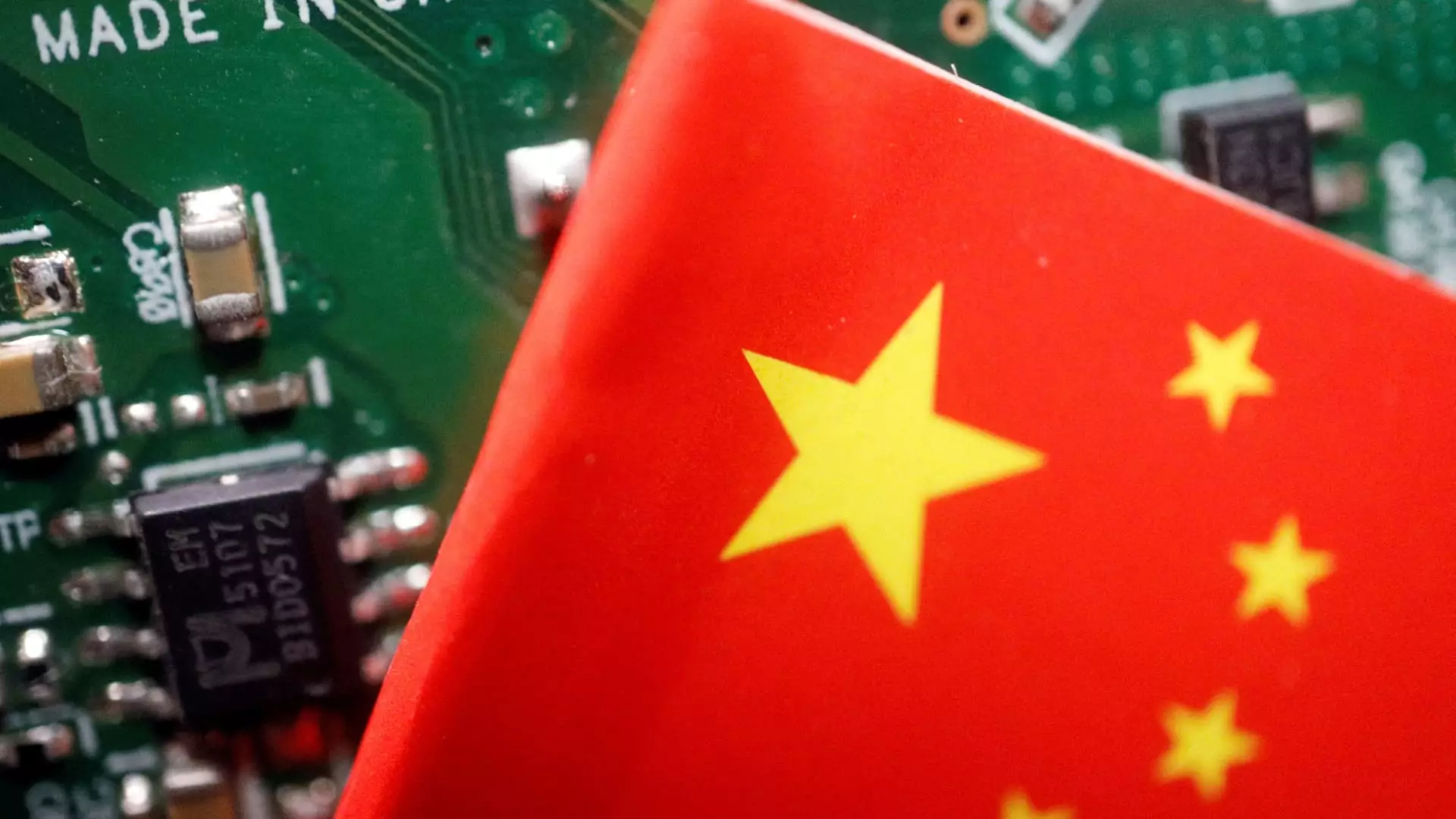The semiconductor industry is undergoing turbulent times with ongoing geopolitical tensions, particularly between the U.S. and China. Recently, major Asian chip stocks, notably those outside of China, have managed to surge despite the U.S. imposing stricter export regulations aimed at curbing China’s capacity to manufacture advanced semiconductor technologies. This article delves into the dynamics of the semiconductor market in Asia and explores the implications of U.S. export restrictions on key players.
Rising Stocks in an Uncertainty-Laden Environment
On a recent trading day, leading chip manufacturers in Asia, primarily in Taiwan and Japan, exhibited impressive stock performance. Taiwan Semiconductor Manufacturing Company (TSMC), recognized globally as the foremost contract chip supplier, witnessed a 2.4% increase in its shares. Japanese technology companies also followed suit, with Tokyo Electron surging by 4.7%, Lasertec achieving a commendable 6.7% uptick, Advantest climbing 3.9%, and Renesas Electronics gaining 2.2%. Even Softbank, which has substantial investments in British chip designer Arm, saw its stock rise by 3.6%. These movements illustrate a remarkable resilience in the market, suggesting that investors are willing to overlook the broader implications of the geopolitical landscape.
The Biden administration’s latest round of semiconductor export restrictions aims to limit China’s access to advanced technologies that could bolster its military prowess. Specifically, the U.S. Department of Commerce has released controls that target around 140 new companies within China, intensifying efforts to inhibit Chinese companies from efficiently accessing high-bandwidth memory chips and advanced manufacturing equipment. While such measures are poised to disrupt supply chains and foreign partnerships, the immediate stock movement among Asian firms indicates a complex reinterpretation of risk by investors.
Portfolio manager Derrick Irwin from Allspring Global Investments offered insights, noting that the new regulations would likely have a manageable impact on South Korean giants SK Hynix and Samsung. Despite the focus on high-bandwidth memory chips, Irwin argued that these companies could redirect demand to markets in the U.S. and beyond, mitigating expected losses. Such adaptability is crucial in an industry where rapid innovation often dictates success.
The response from Chinese semiconductor firms to the new export controls has been mixed. Notably, Naura Technology Group and ACM Research observed declines in their shares by 3% and 1%, respectively. In stark contrast, Piotech managed a 1% increase, indicating a split in market sentiment. Meanwhile, Semiconductor Manufacturing International Corporation (SMIC), the largest chipmaker in China, faced a 1.5% drop in its stock in Hong Kong. This variance underscores the significant challenges for Chinese firms in the face of U.S. trade policy, revealing a delicate balance between resilience and vulnerability.
U.S. Secretary of Commerce Gina Raimondo characterized the new restrictions as a quintessential aspect of the Biden administration’s strategic initiative to impair China’s capacity to develop advanced technologies that pose potential risks to U.S. national security. Alongside the companies targeted in this latest wave of sanctions, the controls also encompass 24 types of manufacturing equipment and three software categories crucial for semiconductor development.
As the semiconductor industry grapples with these newly imposed restrictions, some experts have raised questions regarding their effectiveness, referencing concerns raised last month when components made by TSMC were found in Huawei devices. This illustrates the complexity of global supply chains and the challenge of full compliance in an interconnected world.
As Asian semiconductor stocks navigate through uncertain waters marked by stringent U.S. export controls, the market response has revealed an intriguing juxtaposition of cautious optimism and underlying concerns. Companies such as TSMC and several Japanese manufacturers demonstrate the resilience of the industry against political headwinds. However, the long-term implications of these export restrictions on global supply chains and the technological landscape remain to be seen. Investors and stakeholders must keep a close watch on both domestic developments in Asia and international policy shifts to better understand the evolving semiconductor landscape.

Leave a Reply